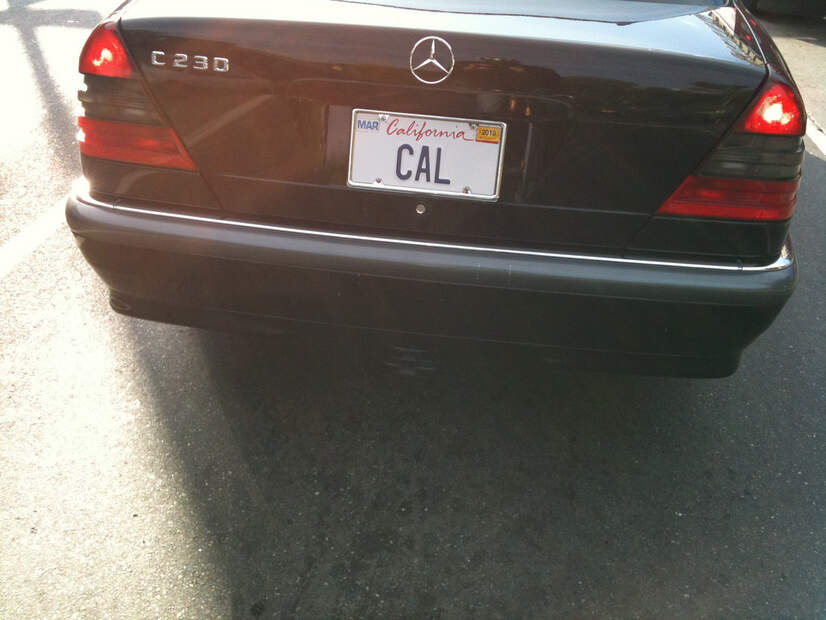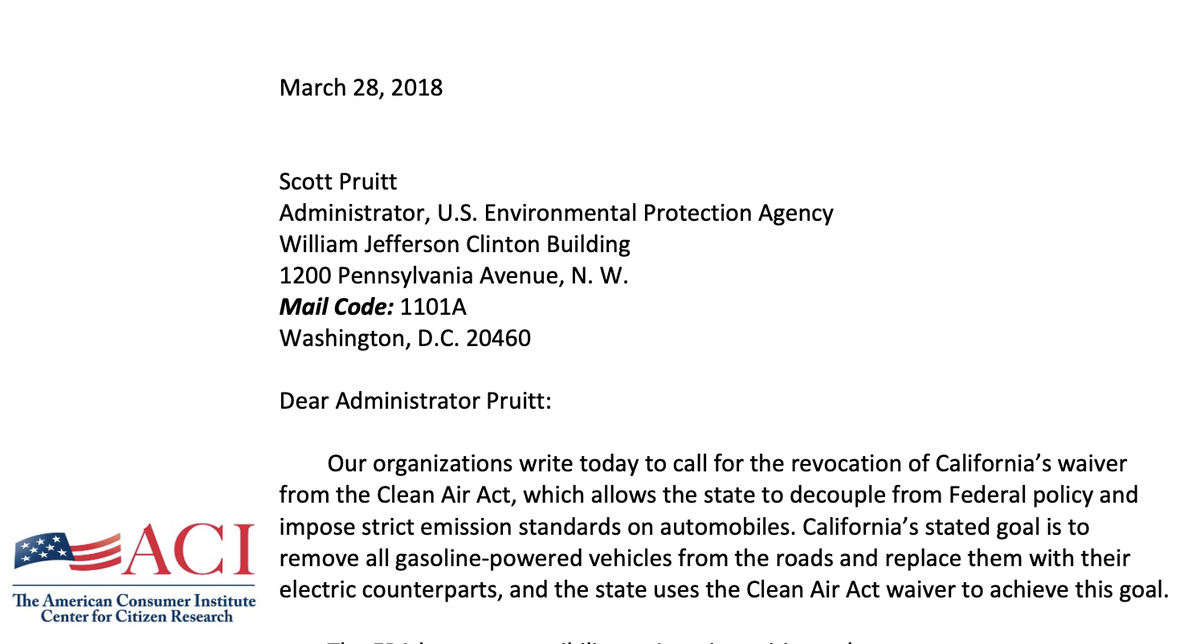The Trump administration is expected to formally announce today that it is rescinding California’s authority to set greenhouse gas emission standards for automobiles. The long-anticipated move is certain to set off a legal battle, as attorneys general in states impacted by the decision have promised to take legal action against the Environmental Protection Agency (EPA) to defend their right to regulate emissions from personal vehicles.
Currently, 14 states and the District of Columbia, serving a population of more than 118 million, have adopted these more stringent tailpipe pollution standards in order to protect the public health of their communities.
The action will also be celebrated by the oil industry and free-market advocacy groups that have been pressuring the White House and the federal agencies to take this unprecedented action. In the history of the Clean Air Act, California’s waiver has only been denied once, by the George W. Bush administration, in a decision that was immediately challenged in court and was soon reversed by President Obama’s EPA. A previously granted waiver has never been revoked or rescinded.
The EPA‘s action isn’t just legally questionable, and is being criticized for a number of other reasons, all of which are being exhaustively reported. For instance:
- California’s authority to set its own clean car standards has a long history of Republican support, and a bipartisan group of 24 governors have called on the administration to keep current standards in place.
- More than two-thirds of Americans support the current standards, according to an American Lung Association poll.
- The Trump administration’s own analysis determined that the proposed rollback would cost 60,000 jobs, and another independent analysis by the Blue Green Alliance warned those losses could be more than three times as high.
- The automakers have urged the Trump administration to preserve the current standards or to work out a compromise with California to enact aggressive emissions reduction standards under one national program.
- The rollback will cost new car buyers up to $5,000 over the lifetime of their vehicles, and owners of SUVs and small trucks will pay up to $8,000 more, according to a recent analysis by M.J. Bradley & Associates.
Though this move has been expected for months, not long ago, California’s waiver was considered sacrosanct, and Clean Air Act legal experts doubted that the EPA would have any authority to revoke an existing waiver. Even Mary Nichols, chair of the California Air Resources Board, told Desmog in April 2018, “I don’t think they’re going to do that.”
Despite the dubious legal footing, stripping California of its right to regulate is what the Koch network has been demanding all along. As early as March 2017, then-EPA administrator Scott Pruitt was exploring how to withdraw this waiver from California, and he was presumably prepped to address the issue by the head of the EPA transition team, Myron Ebell of the Koch-funded Competitive Enterprise Institute, and other Koch network reps who were a part of the Trump administration’s transition teams.
In March 2018, representatives from 11 groups, eight of which have known financial and personnel ties to the Koch network, sent a letter to Pruitt asking that he revoke California’s waiver. The groups included the Competitive Enterprise Institute (CEI), the 60 Plus Association, Frontiers of Freedom, and the Taxpayers Protection Alliance (TPA), part of the network of front groups funded by the Koch brothers and their donor network through the Center to Protect Patient Rights (now called American Encore), and Freedom Partners.
Later, in May 2018, three former members of President Trump’s transition teams — all of whom work or worked with Koch-funded and Koch-founded organizations — sent the president another letter, which also argued for the EPA to withdraw California’s legislated right to set its own tailpipe emissions standards.
As DeSmog reported at the time, that letter was signed by Tom Pyle of the Institute for Energy Research (IER), Myron Ebell of the Competitive Enterprise Institute, and Shirley Ybarra, a former fellow at the Reason Foundation. All three organizations have close Koch ties, and Pyle was himself a lobbyist for Koch Industries, the petrochemical empire privately owned by billionaire brothers Charles and David Koch. “Decisions about what kinds of cars people buy and drive should be made by the consumers themselves, not bureaucrats in Sacramento,” said Pyle at the time.
In June, House Democrats opened an investigation into why the oil industry was the “only winner” in the proposed rule change, and asked a number of oil and gas companies, trade groups, and free-market advocacy organizations — Marathon Petroleum, the American Fuel & Petrochemical Manufacturers (AFPM), the American Legislative Exchange Council (ALEC), Energy4US, and Americans for Prosperity — for information about a “troubling, secret lobbying and social media campaign that reportedly occurred leading up to its release.”
The covert campaign was first exposed in a December 2018 New York Times investigation, which described how Marathon Petroleum and the AFPM — in which Koch Industries is a particularly influential member — worked with other advocacy groups to circulate letters to Congress, while AFPM deployed an unregistered, unincorporated front group called Energy4US to bundle comments from Facebook users to send to the DOT to support a rollback of the standards.
When the EPA formally makes the announcement this afternoon, representatives of “free-market groups that have championed the Trump administration’s rollback” are expected to be in attendance. If these groups are the same that have lobbied throughout for this revocation of California’s waiver, then they are funded by the Koch network and Big Oil allies, those very industries who stand to benefit most from the decision.
Main image: Cal license plate. Credit: Ryan Greenberg, CC BY–NC 2.0
Subscribe to our newsletter
Stay up to date with DeSmog news and alerts







